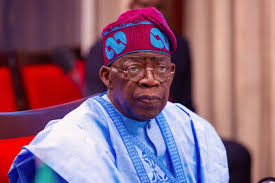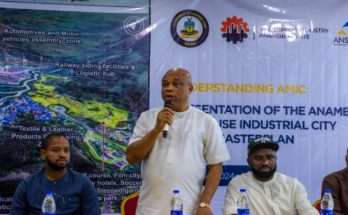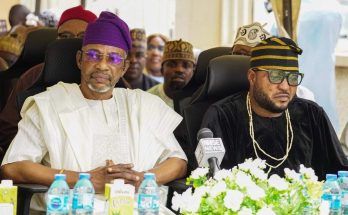On October 31, 2023, President Bola Tinubu, as chair of the Nigeria Police Council (NPC), set up a constitutional review committee to carry out comprehensive police reforms. The committee, among other tasks, was charged to assess the lapses in the 1999 Constitution that are holding back reforms of the Nigeria Police Force as well as enhance coordination and align technology and manpower resources towards strengthening the police.
The council also observed with dismay that no meaningful reforms have taken place in the police since its creation in 1861. It therefore tasked the committee to come up with ideas that would lead to reforms that would characterise a new Nigeria police.
Members of the committee are the National Security Adviser (NSA), Mallam Nuhu Ribadu; Minister of Police Affairs, Ibrahim Geidam; Chairman, Police Service Commission, Solomon Arase; and Chairman, Nigeria Governors’ Forum, Governor AbdulRahman AdbulRazaq.
“The confirmation of the IGP prompted further discussions on the Nigeria Police Force and the president has formed a special committee to look at all the gaps in Nigeria’s 1999 Constitution to bring harmony and synergy, technology and manpower to the NPF,” Governor Bala Mohammed told journalists after the NPC meeting.
Although there have been attempts at police reform in the past, they rarely succeeded beyond policy conception and formulation stages. For instance, as recently as June 2019, former President Muhammadu Buhari signed the Police Trust Fund, PTF, bill into law. He also re-established the Ministry of Police Affairs in August 2019 “to reposition the police for better service delivery to the nation”, after it was merged with the Ministry of Interior.
The objective of the PTF, as stated on its website, “is to provide adequate resources for the training and re-training of personnel of the Nigeria Police Force and the provision of state-of-the-art security equipment and other related facilities for the enhancement of the skill of the personnel of the Nigeria Police in the handling of operational equipment and machinery”.
In 2020, the Police Act also repealed the Police Act Cap P19, Laws of the Federation, 2004 and enacted a new law to provide for a more effective and well organised Police Force driven by the principles of transparency and accountability in its operations and management of its resources.
As interesting as the objective sounds, there is consensus among critical stakeholders and the citizenry at large that the police need comprehensive reform if it genuinely wants to build a well-trained, equipped, and motivated force that is proactive, prompt and responsive to security challenges effectively and efficiently, in line with global best practices.
To this end, one of the most crucial reasons progress has been slow despite concerted efforts to reform the police is what the police council under President Tinubu has identified and is now working to solve. Addressing the issue of constitutional gaps that have rendered previous attempts at reforming the police daunting and unsuccessful is a right step in the right direction; a requisite condition for a comprehensive and workable reform process.
To underscore the commitment of the present administration to follow through on its promise to reform the police, the Renewed Hope Agenda vividly captures policy direction, stating that it will focus on repositioning the police force to better deliver on its primary duties of community policing and maintaining law and order through crime fighting and prevention. Cogently, the agenda also states that “Police personnel will be freed from extraneous duties such as VIP security and guard duties.
VIP security and provision of security for government buildings, installations and other critical assets will be transferred to the Nigeria Security and Civil Defence Corps (NSCDC).” True to that solemn promise, the federal government recently withdrew the Mobile Police Force personnel attached to several very important persons, including ex-governors, former ministers and lawmakers.
The Office of the National Security Adviser (ONSA) also recently entered into collaboration with the United Nations Development Programme (UNDP) and the German Embassy in Nigeria for a comprehensive police reform initiative. The NSA said the agreement reached by the three institutions would support the work of the Special Committee of Police Reform and reiterated President Tinubu’s commitment to lead a comprehensive police reform process “anchored on trust, human rights, rule of law and efficient public service”.
It is hard not to acknowledge the passion and dedication with which the NSA is pursuing this commitment on behalf of the present administration. As a retired assistant inspector general of police, it is not difficult to see why there are few people more determined and suited for the job of delivering on police reform. Apart from having the right people leading the charge, there are many other reasons for Nigerians to be optimistic about the current attempt at police reform seeing the light of day. The fact that the government has identified and is exploring collaboration with partners within and outside the country is a strong indication that there is a desire to achieve success this time around.
Nigerians have been assured that both the special committee and the NPC will come up with an inclusive strategy towards police reform, including revisiting some of the previous and existing projects and policy documents designed to proffer a way forward as regards reforming the police. For instance, the Police Reform Project, a 12-month implemented by CLEEN Foundation and funded by MacArthur Foundation, focused on inspiring rights-centred approaches and compliance for effective police and policing strategies towards entrenching deeper democratic principles and values in Nigeria.
It is believed that such valuable exercise and many others would be harvested and utilised through the kind of collaboration and partnerships that have already been demonstrated in the course of transforming the police.
Finally, understanding that no reform achieves optimum results without the buy-in and support of the people who are expected to be direct beneficiaries of a better policing system is another reason to be upbeat about the determination of the present administration. Section 4 of the Police Act (2020) extended the duties of the Nigeria Police beyond the detection and prevention of crimes and protection of rights, lives and properties, maintenance of public safety, law and order; and the enforcement of laws and regulations to include collaborating with agencies to assist persons in distress, victims of road accidents, fire disasters, earthquakes, and flood, facilitating the free passage and movement on the highways, roads, and streets open to the public and adoption community partnership.
Both the NSA and the IGP have expressed on several occasions that those provisions cannot be implemented successfully if public trust in the police is low. This is an indication that the public will be carried along this time around; as it should be.
There are reasons to be positive that the current police reform exercise is rooted in a solid foundation. After all, the Renowned Hope Agenda clearly states on Page 10, “We shall boost public confidence in the Nigeria Police and other internal security agencies by increasing recruitment and providing high-tech, non-lethal equipment with corresponding manpower development schemes.”
Mijinyawa writes from Abuja




